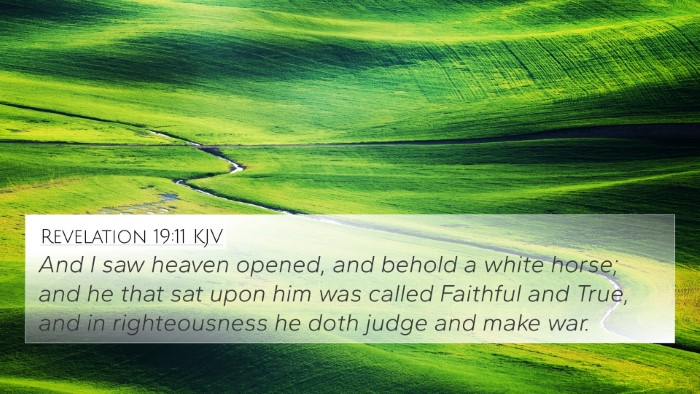Understanding Proverbs 16:12
Proverbs 16:12 states: "It is an abomination to kings to commit wickedness: for the throne is established by righteousness." This verse highlights the idea that rulers and leaders are expected to uphold righteousness, as their authority stems from moral integrity.
Commentary Insights
According to Matthew Henry, this verse underscores the moral responsibility of kings and those in authority. They are admonished to avoid wickedness as their actions have far-reaching impacts on their reign and society's well-being. Engaging in evil undermines their leadership and damages the trust of their subjects.
Albert Barnes notes that the throne, which symbolizes authority and justice, can only stand firm when it is founded on righteousness. He emphasizes the idea that unethical leadership can lead to chaos and instability, indicating that a king's strength lies in his ability to rule justly.
Adam Clarke also reflects on the consequences of a ruler's actions, stating that leaders who commit wickedness face divine judgment. He suggests that righteousness is not merely an ideal but a prerequisite for a successful reign that secures peace.
Related Bible Verses
- Proverbs 20:28: "Mercy and truth preserve the king: and his throne is upholden by mercy." This verse complements Proverbs 16:12, reinforcing the importance of mercy as a foundation for ruling.
- Proverbs 29:4: "The king by judgment establisheth the land: but he that receiveth gifts overthroweth it." Here, it is specified that just judgment is essential for a stable domain.
- Isaiah 9:7: "Of the increase of his government and peace there shall be no end, upon the throne of David, and upon his kingdom, to order it, and to establish it with judgment and with justice." This verse exemplifies the ideal ruler whose governance is marked by justice.
- Romans 13:1: "Let every soul be subject unto the higher powers. For there is no power but of God: the powers that be are ordained of God." It highlights that authority originates from God, and leaders should reflect divine standards.
- 1 Peter 2:13: "Submit yourselves to every ordinance of man for the Lord's sake: whether it be to the king, as supreme." This verse reveals the expected relationship between rulers and subjects.
- Psalm 72:1-2: "Give the king thy judgments, O God, and thy righteousness unto the king's son." This prayer emphasizes the need for divine wisdom in leadership.
- Micah 6:8: "He hath shewed thee, O man, what is good; and what doth the Lord require of thee, but to do justly, and to love mercy, and to walk humbly with thy God?" A foundational principle for all believers, particularly applicable to leaders.
Cross-Referencing Biblical Texts
Proverbs 16:12 engages in a broader conversation about leadership and morality throughout the Bible. This verse's emphasis on righteousness lays a thematic groundwork for understanding other scriptures regarding authority and ethical governance. Here’s a guide to how these scriptures interrelate:
-
Connections between Proverbs 16:12 and Proverbs 20:28: Both verses assert that righteousness and mercy are crucial for effective leadership. They remind kings that their authority is sustained through ethical conduct.
-
Linking Proverbs 16:12 with Isaiah 9:7: Both scriptures reflect on the necessity of justice in governance, confirming the scriptural ideal for rulers.
-
Comparative Analysis with Romans 13:1: Understanding that God ordains authority highlights that rulers are not merely political figures but also accountable to God for moral behavior.
-
Bible References for Practical Guidance: Tools for cross-referencing biblical texts, like a Bible concordance or cross-reference Bible study methods, can help examine these interconnected themes with clarity.
Tools for Bible Cross-Referencing
For those looking to delve deeper into the inter-Biblical dialogue, utilizing a bible cross-reference guide can illuminate parallel themes. Here are some recommended approaches:
- Use a Bible concordance to find related passages that share themes of righteousness and authority.
- Engage in cross-referencing Bible study methods to explore how different verses provide insight into the nature of divine leadership.
- Consult comprehensive Bible cross-reference materials for a thorough understanding of connections between verses.
- Explore Bible chain references that link various scriptures thematically and contextually.
Conclusion
In summary, Proverbs 16:12 serves as a profound reminder of the importance of righteousness in leadership. Understanding this verse in the light of related scriptures offers a holistic view of what is required from leaders according to Biblical principles. By employing effective cross-referencing tools, readers can deepen their understanding of Biblical texts and the overarching themes of justice and morality in governance.
FAQs
What verses are related to Proverbs 16:12?
Several verses, such as Proverbs 20:28 and Isaiah 9:7, share similar themes regarding the necessity of righteousness and justice for effective leadership.
How do Proverbs 16:12 and Romans 13:1 connect?
Both verses clarify God's role in establishing authority and the expectation that leaders will uphold moral and ethical standards.
Why is righteousness important for a king?
Righteousness establishes the legitimacy of a king's rule and ensures the well-being of his subjects, as reflected across several scriptures.










